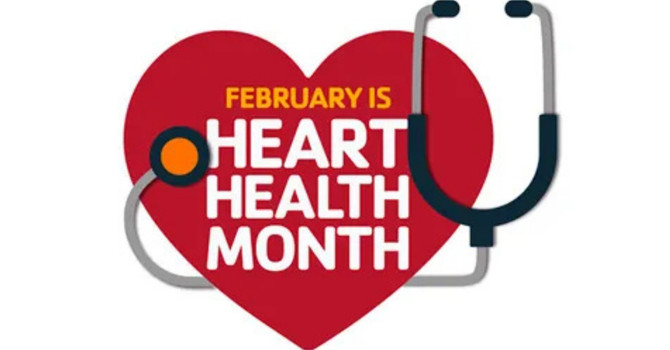
A New Era for Women’s Health and Hormone Therapy
Menopause marks a major milestone in every woman’s life—a transition that affects not only reproductive health but also metabolism, heart, brain, bone, and emotional well-being. Despite being a universal experience, menopause has long been misunderstood, under-treated, and even stigmatized.
This November, Menopause Awareness Month, comes with monumental news: the FDA has officially removed the long-standing “black box” warning from many hormone therapy products—a decision that could reshape the future of menopause care.
Let’s explore what this means, what happens to a woman’s body during menopause, and how this update could improve care for millions of women.
What Is Menopause?
Menopause is officially diagnosed when a woman has gone 12 consecutive months without a menstrual period. Menopause is one day in time. Being post menopausal is every day after that. Most women experience this transition around the average age of 52, though symptoms often begin several years earlier during perimenopause.
As the ovaries slow down hormone production—especially estrogen and progesterone—the body adapts to new hormonal rhythms. This shift can bring a variety of symptoms:
- Hot flashes & night sweats
- Sleep disturbances and fatigue
- Mood changes, anxiety, or low motivation
- Weight gain or body composition changes (often more belly fat)
- Brain fog or forgetfulness
- Joint aches or muscle stiffness
- Vaginal dryness, urinary changes, and discomfort with intimacy
- Increased bone loss and rising cardiovascular risk
- Other more vague symptoms can include itchy ears and skin, ringing in ears and palpitations
For some women, these changes are mild and manageable. For others, they can be life-altering—impacting work, relationships, and overall vitality.
The FDA’s Groundbreaking Update on Hormone Therapy
On November 10, 2025, the U.S. Food and Drug Administration (FDA) announced that it will remove the “black box” warning—the most severe caution label—from many menopausal hormone therapy (HRT) products.
For over two decades, these boxed warnings cautioned women and clinicians about possible risks of breast cancer, heart disease, stroke, and dementia associated with HRT—risks that stemmed largely from older data (specifically the early 2000s Women’s Health Initiative study).
Why the Change?
After extensive review of modern evidence, the FDA concluded that these blanket warnings were misleading and outdated. Newer studies show that when hormone therapy is started within 10 years of menopause onset (or before age 60), it may offer benefits that outweigh risks for many women.
What Will Change:
- The black box warning will be removed from most systemic estrogen and combination estrogen-progestogen products.
- The only boxed warning that remains is for unopposed estrogen use in women with a uterus, due to endometrial cancer risk if not balanced with progesterone.
- Labeling will now emphasize individualized care rather than “lowest dose for shortest duration.”
- The decision highlights a more nuanced, age- and timing-specific understanding of risk.
(Sources: FDA Press Release, AP News, Washington Post)
What This Means for the Future of HRT
This announcement represents a historic shift in women’s healthcare. Here’s why it matters:
- Destigmatization: For years, both patients and clinicians hesitated to consider HRT because of fear. Removing the black box opens the door for more balanced, evidence-based conversations.
- Personalized Care: HRT can now be approached with the same individualized mindset we use for other therapies—considering each woman’s age, risk profile, and symptoms.
- Timing Matters: Starting HRT earlier in the menopausal transition often provides symptom relief and may protect bone, brain, and heart health. Stay tuned to hear more information regarding a new, ground breaking study revealing the importance of HRT in perimenopause!
- More Options: Transdermal estrogen, oral progesterone, and local (vaginal) therapies can be used safely in many women when properly monitored.
This doesn’t mean hormone therapy is for everyone—but it does mean women can make more informed, confident choices with their healthcare provider.
An Integrative Approach to Menopause
At our clinic, we view menopause as a window of opportunity to support long-term health—not just to ease symptoms. Back in Line offers HRT that is tailored to each woman’s need, no “cookie-cutter” protocols or one-size-fits-all approaches. Each person’s nuanced risk factors, history and symptoms are taken into account, helping to formulate a personalized HRT regimen. We also pride ourselves by using FDA approved, bioidentical hormones when appropriate.
Our Approach Includes:
- Comprehensive Hormone & Metabolic Evaluation
- Assessing thyroid, cortisol, insulin, lipids, and inflammatory markers alongside sex hormones.
- Nutrition & Lifestyle Optimization
- Emphasizing adequate protein, healthy fats, fiber, and micronutrients to stabilize metabolism and protect bone and brain health.
- Evidence-Based Hormone Therapy
- Offering bioidentical and FDA-approved options when appropriate, using safe, individualized dosing and close follow-up.
- Support for Sleep, Mood, and Stress
- Incorporating mindfulness, adaptogens, and stress-modulating nutrients to rebalance the nervous system.
- Movement & Strength
- Resistance and impact training to preserve muscle and bone density.
Our goal is to help women thrive through menopause—not just survive it.
Why Menopause Awareness Month Matters
Millions of women silently endure symptoms that affect their health and quality of life. By raising awareness this November, we can:
- Encourage open conversations between women and their providers.
- Dispel myths and fears about hormone therapy.
- Empower women to take charge of their midlife health with evidence-based options.
This year’s FDA decision marks a turning point—an opportunity to move forward with clarity, compassion, and confidence.
Ready to Take the Next Step?
If you’re struggling with hot flashes, fatigue, mood changes, or just “not feeling like yourself,” you don’t have to power through alone. Call Back in Line’s front desk staff to get your appointment scheduled with Jill Reese, PA-C at 319-892-3363. Want to stay up to date on current menopause news, tips and tricks for healthy living and more? Consider following her on Facebook at Integrative Medicine at Back in Line or on Instagram at integrativepa_jill



